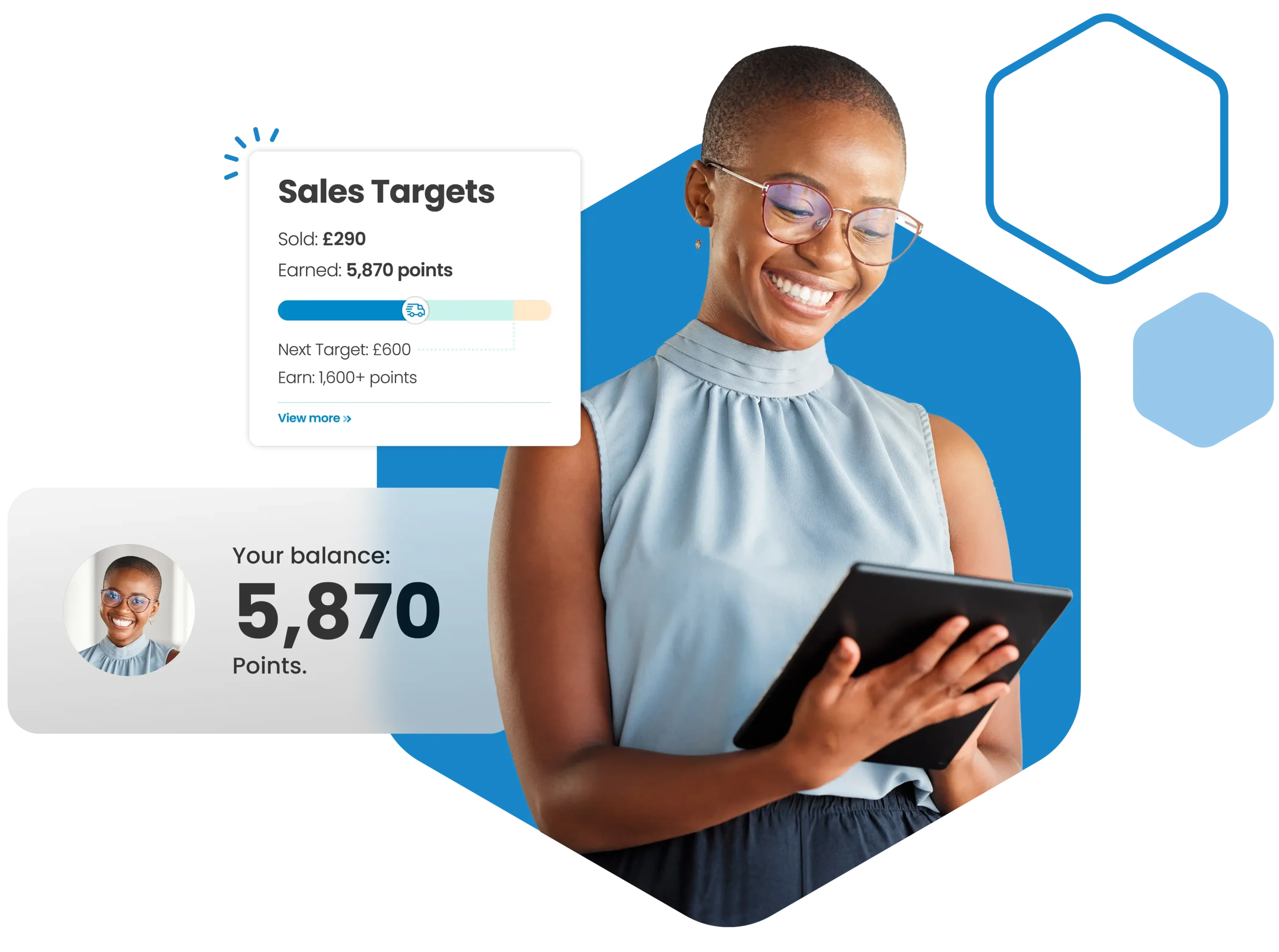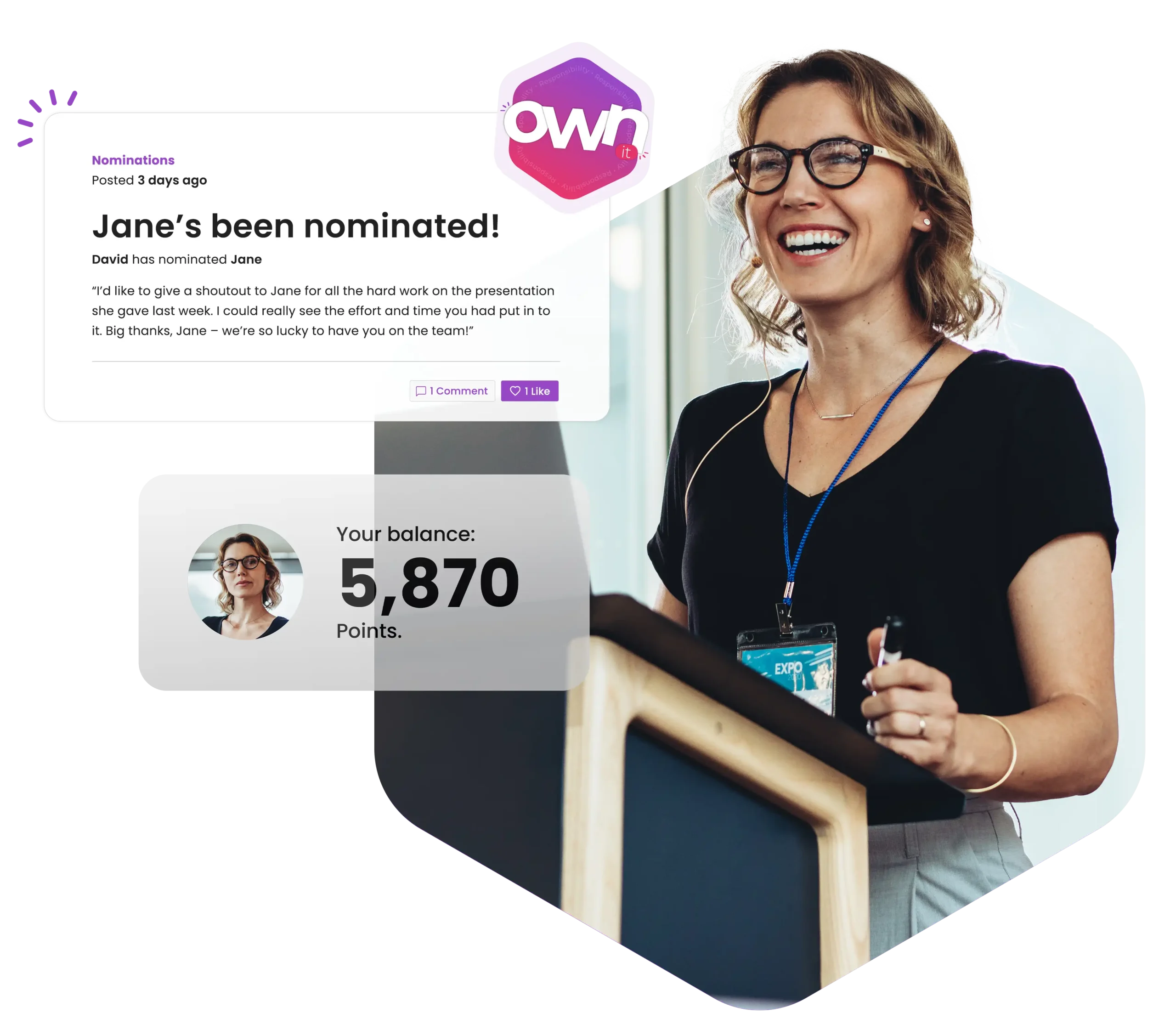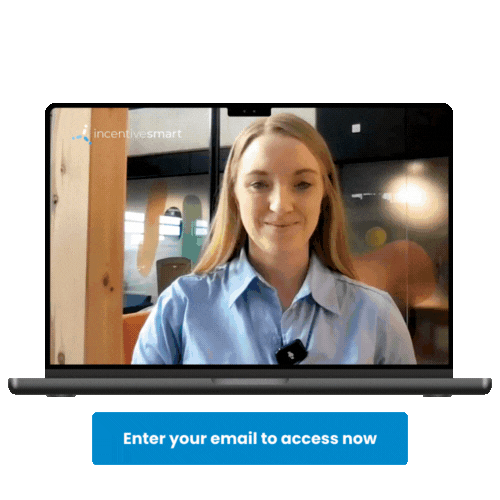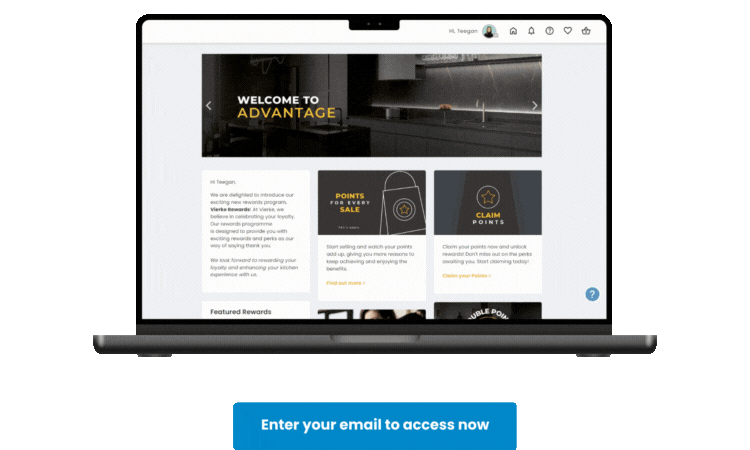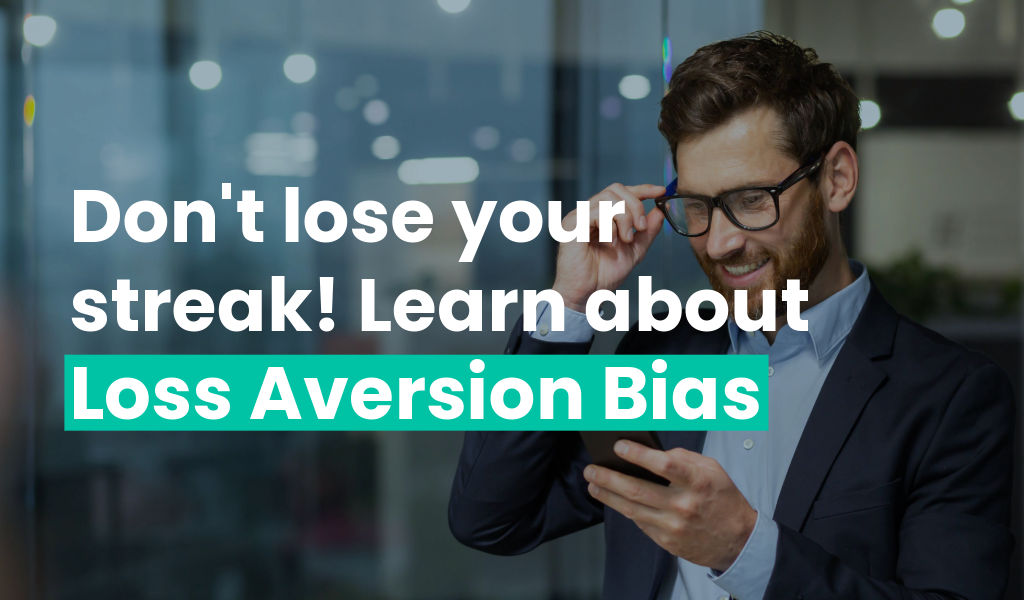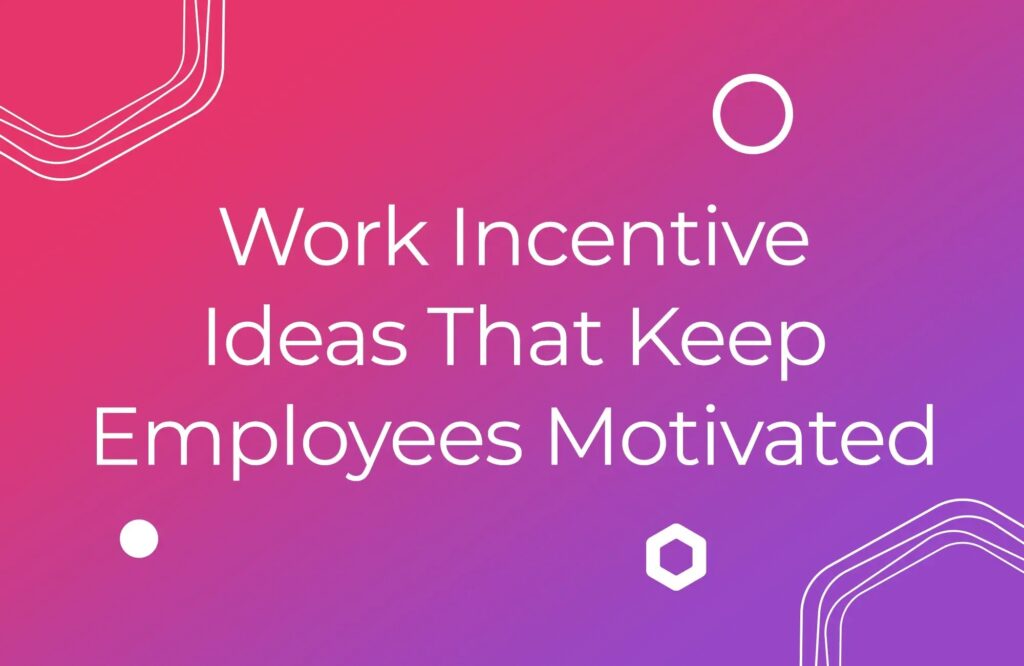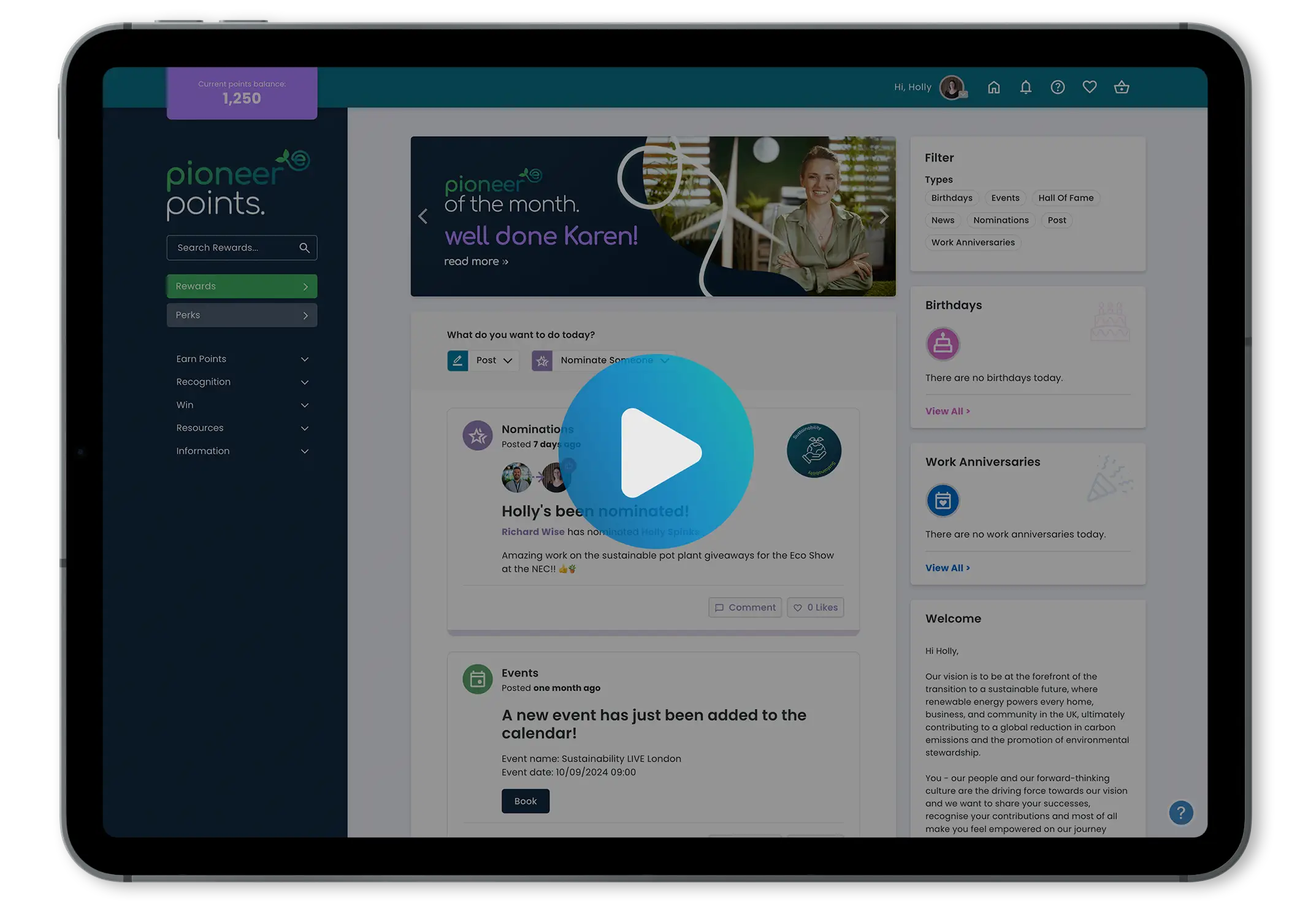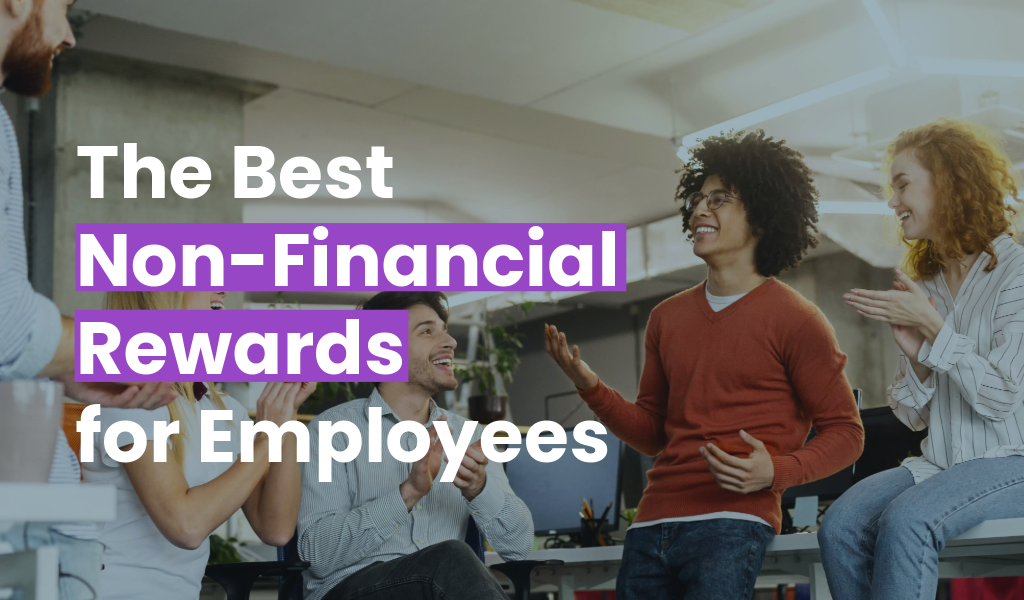


If you’re striving to enhance the employee experience in your organisation and want to ensure your workforce reaches its full potential, then non-financial employee rewards can help. Such non-cash rewards can deliver a quick-win injection of job satisfaction, when layered on top of other initiatives.
While bonuses and other financial employee incentives have traditionally hogged the limelight, businesses are increasingly exploring alternative means to demonstrate a genuine appreciation of their teams’ efforts – including through compelling non-monetary incentives.
Within this blog, we’ll explore a spectrum of innovative non-financial reward options that extend beyond the realm of typical compensation. So let’s delve into how these rewards can positively influence an individual’s contribution to the wider success of any business.
What are the different types of non-financial rewards for employees?
 Volunteer work
Volunteer work
Employees (especially younger team members) yearn for something more profound than just a job. According to insights from Sage, 53% of those under 35 are eager to give more of their time to volunteering, and this enthusiasm is even higher amongst the 18-24 age bracket, with a substantial 60% expressing a keen interest in contributing to meaningful causes, as shared in a report by City Philanthropy.
Employees increasingly seek companies that align with their values and recognise their drive to make positive impacts on society. Volunteering provides exactly this opportunity. It’s not simply about clocking in and out each day—it’s about contributing to something bigger. When your employees volunteer, they connect deeply with important causes, creating a workplace atmosphere filled with purpose, engagement, and fulfilment.
Volunteering encourages your team members to step away from the daily grind, collaborate beyond their usual job boundaries and build stronger connections both internally and within the community. As they work together to support meaningful causes, your employees not only develop new skills but also enhance existing ones. They gain fresh perspectives, increased empathy and often return to their roles feeling recharged and inspired.
Additionally, volunteering can significantly enhance your company’s reputation, demonstrating your genuine commitment to social responsibility. Employees feel a greater sense of pride working for a business that actively supports charitable initiatives and community engagement. Offering structured volunteering opportunities, such as dedicated volunteer days or partnerships with local charities, can further reinforce your commitment and foster a deeper sense of loyalty among your workforce.
Participating in volunteer work brings people together, transcending the boundaries of job titles and engaging with the community in a way that brings the team closer to one another and the world around them. As employees invest their time in causes they are passionate about, they find themselves acquiring a diverse set of skills and in turn, become more well-rounded individuals.
 Professional development opportunities
Professional development opportunities
The aspirations of young professionals are changing. Jobs now go beyond the pursuit of a mere paycheck; there’s a shared desire for continuous learning, personal development and professional growth among employees.
When you invest in your team’s professional growth, you’re showing that you value their aspirations and ambitions. Employees appreciate the chance to learn new skills, expand their knowledge and grow within their roles. Professional development opportunities can range from leadership courses and industry-specific training to attending seminars or conferences, allowing your team to stay ahead of the latest trends.
Organisations that prioritise professional development create a culture of continuous learning, which boosts employee satisfaction and morale. This approach not only helps to attract motivated, ambitious candidates but also retains your existing talent. Employees who feel supported in their career journey are more engaged, productive and loyal—making professional development opportunities a valuable investment for your company’s future.
 One-on-one with the boss
One-on-one with the boss
One-on-one meetings allow employees to engage in focused, personalised discussions with their supervisors. This setting allows for a more profound understanding of your employee specific needs, concerns and career aspirations. Regular, constructive feedback on performance and recognition of achievements in these meetings significantly boosts employee morale.
During these sessions, employees have the chance to articulate their career goals and supervisors play a pivotal role in offering guidance on the steps needed to attain those objectives. Employees who feel genuinely heard and supported tend to demonstrate higher levels of motivation, satisfaction and productivity.
A few top tips for effective one-on-one meetings:
- Regularly schedule: Set a consistent schedule for these meetings, whether it’s weekly, bi-weekly or monthly, so that employees can anticipate and prepare for discussions.
- Agenda: Create an agenda for each meeting to ensure that important topics are covered. This could include updates on projects, goal progress, challenges and career development discussions.
- Goal Setting: Regularly review employees’ goals, track progress, adjust targets when necessary and set new achievable objectives.
- Recognition and appreciation: Always make time to acknowledge and celebrate your employees’ contributions, no matter how small. Recognition significantly enhances morale.
- Collaborative problem-solving: Address any challenges or issues the employee is experiencing. Working together to find solutions emphasises your company’s commitment to being a supportive and proactive partner in your employees’ success.
 Birthday off
Birthday off
Offering employees a day off on their birthday, outside of their annual leave, is more than just a policy; it’s a compassionate and employee-centric initiative that significantly boosts workplace morale. This gesture has the potential to create a meaningful impact on how employees perceive their employer and their role, emphasising that work isn’t just about the mundane 9-5 routine. Instead, it underscores the company’s acknowledgement that personal moments truly matter.
This practice is a testament to how the business perceives its employees. They are not just as a single cog in the company machine, but individuals with their own needs and wants. It’s a way of saying, “we value you, not only for the work you do but for the person you are.”

 Social events
Social events
Social events are one of the easiest and most effective ways to reward your team without spending big. They create shared memories, bring people together and add a much-needed dash of fun to the working week.
From casual get-togethers to bigger celebrations, social events give your team a chance to relax, chat and enjoy each other’s company away from the usual day-to-day tasks. Whether you’re marking a project win, celebrating a team member’s work anniversary or just bringing everyone together for a summer BBQ—these moments count.
People like to feel part of something. By creating space for laughter and genuine connection, you’re helping your team bond on a deeper level. It’s those shared experiences that turn colleagues into friends, and teams into something stronger.
You don’t need to go all-out with extravagant events either. A simple pizza lunch, a games night or a themed dress-up day can go a long way. It’s less about the budget, more about the thought behind it.
On top of that, you can mix in some structured team-building now and again. Think escape rooms, outdoor challenges, creative workshops or even volunteering together. These activities bring out different strengths, spark collaboration and build trust in a fun, relaxed setting.
By investing in social events and team-building, you’re doing more than planning a party. It’s a powerful, people-first way to say, “We’re glad you’re here.”
 Staff discount schemes
Staff discount schemes
Staff discount schemes are a brilliant way to reward your employees without increasing salaries. They offer real-world value and show your team that you’re looking out for their everyday needs.
These schemes allow your people to save money on things they already spend on—like groceries, clothes, tech, holidays, cinema tickets, and even gym memberships. It’s a great way to help their pay packet go that little bit further, especially during times when the cost of living is high.
Offering employee discounts also adds value to your overall benefits package. It’s a non-financial reward that feels personal and practical. It shows that you understand life outside of work and want to make it a bit easier—and a bit more enjoyable—for your team.
You can keep things in-house with discounts on your own products or services. Or, you can partner with external providers to offer perks across retail, travel, entertainment, wellbeing, and more. Some schemes offer fixed discounts—like 10% off at certain shops—while others include time-limited deals, flash sales, or exclusive partner offers.
The best part? These schemes are easy to set up and don’t have to cost the business much to run. You can work with third-party platforms that manage everything for you, or build your own simple partnerships with local businesses.
When done right, staff discount schemes can feel like a constant ‘thank you’—one that your employees can enjoy week after week. It’s a thoughtful way to support your team’s lifestyle, boost morale, and give them something tangible to smile about.
 Childcare support
Childcare support
Providing childcare support for staff is a valuable employee benefit that acknowledges the challenges faced by many working parents as they navigate the demands of both their professional and family responsibilities.
Here are some of the ways that businesses can provide this extremely beneficial non-financial reward to their staff:
- On-site childcare facilities: Creating on-site childcare facilities is a strategic choice made by certain (typically larger) companies, where they set up childcare centres either within or in close proximity to their workplace. This offers convenience for parents, providing them the opportunity to drop off and pick up their children without the need for extensive travel.
- Childcare subsidies: Employers may provide financial assistance or subsidies to help cover the costs of external childcare services, which can ease the financial burden on parents and enable them to access quality childcare options.
- Flexible working arrangements: Offering flexible working allows parents to better manage their work and childcare responsibilities. This could involve adjusting start and end times, implementing compressed workweeks, or allowing remote working when possible.
- Parental leave policies: Having well-defined parental leave policies is crucial for creating a supportive environment for new parents. These policies should not only cover maternity leave but also include provisions for paternity leave and extended leave options.
 Free meals and snacks
Free meals and snacks
Offering free meals and snacks is a fantastic non-financial way to show your team you care. It might seem like a small gesture, but it makes a big impact—on wellbeing, productivity, and morale.
We all know how busy the working day can get. Offering quick access to healthy snacks or hot meals means your team doesn’t have to worry about planning lunches or dashing out to grab food. You’re giving them one less thing to think about—and that goes a long way in reducing stress and keeping energy levels steady.
When you give your employees free food options, you’re not just filling their stomachs—you’re fuelling their day. Nutritious choices can boost concentration, support physical health, and help avoid that mid-afternoon slump. Plus, having food on-site encourages better break habits. People are more likely to take proper time out, recharge, and return to their desks feeling refreshed.
There’s also a financial benefit. Buying lunch every day adds up quickly, and your team will really appreciate the cost savings over time. Whether it’s a free breakfast bar, fruit baskets, or regular catered lunches, these little perks can make a big difference to an employee’s monthly budget.
Food also has a lovely way of bringing people together. Sharing a meal, grabbing a coffee, or chatting over snacks can create informal social moments that strengthen team bonds. It’s a simple way to encourage connection, spark conversation, and build a stronger workplace culture.
You don’t need to offer full meals every day. Even just stocking up the kitchen with fresh fruit, healthy nibbles, or a Friday treat tray can brighten someone’s day. It’s a thoughtful, practical reward that says, “We value your time, your health, and your happiness.”
 Employee assistance programmes (EAPS)
Employee assistance programmes (EAPS)
Employee Assistance Programmes (EAPs) are employer-sponsored initiatives designed to prioritise the wellbeing of employees.
These programmes play a crucial role in offering a range of services and resources to help employees navigate personal or work-related challenges that may impact their mental health.
We all face challenges from time to time. Stress, anxiety, financial worries, relationship issues, or even just feeling burnt out can take a real toll on someone’s health and performance. EAPs are there to step in and offer the right kind of help, at the right time.
One of the most valuable features of an EAP is access to counselling. Employees can speak with qualified professionals in a completely confidential setting—whether that’s over the phone, face-to-face, or through online sessions. It’s a supportive, judgement-free space to talk things through and find healthy ways to cope.
EAPs also go beyond mental health. Many programmes offer practical support too, like legal advice, help with budgeting, parenting resources, or even guidance during big life changes. Some even include 24/7 helplines for immediate assistance during a crisis or traumatic event.
The best part? Your employees don’t have to go through HR or management to use the service. Everything is confidential, so they can seek support without worrying about privacy or judgement. That trust is key—and it makes a huge difference to whether someone feels comfortable asking for help.
By offering an EAP, you’re sending a strong message that your business cares about more than just output and performance. You’re creating a culture that prioritises people’s wellbeing, encourages openness, and supports employees through the ups and downs of life.
It’s a powerful, non-financial reward that shows your team you’ve got their back—whatever they’re facing.
 Financial wellbeing support
Financial wellbeing support
Offering financial wellbeing support with an on-call advisor is a valuable employee benefit that underscores an organisation’s commitment to the financial health of its workforce.
Given the undeniable link between money and mental health, especially amid the current cost-of-living crisis, employers can significantly ease the burden of money worries through this this free service.
These systems will typically have financial advisors available to employees, allowing them to seek guidance and assistance with various aspects of their financial lives. Advisors can work with employees to create personalised financial plans based on their unique goals, priorities, and circumstances. This may cover topics such as budgeting, investments, retirement planning and debt management to help employees make informed decisions about their money.
 Subsidised gym membership
Subsidised gym membership
Subsidised gym memberships reflects an employer’s commitment to the wellbeing of their employees. By contributing a portion of the cost or offering discounts for access to fitness facilities and wellness programmes, this incentive serves as a proactive measure to encourage a healthier lifestyle among the workforce.
The primary goal is to promote physical health and enhance overall wellbeing. This is aligned with the understanding that a healthy employee is likely to be more engaged, productive and satisfied in the workplace.
By making fitness resources more accessible, employers facilitate regular exercise, which is known to contribute to improved cardiovascular health, reduced stress levels and increased energy. This, in turn, can lead to fewer sick days and a workforce that is more resilient and capable of meeting the demands of their roles.
Moreover, subsidised gym memberships can contribute to heightened employee retention by portraying the company as one that prioritises employee health. This positioning not only enhances the organisation’s appeal but also aids in attracting top talent, particularly among individuals who are keen to maintain a healthy work-life balance.

FAQS
Monetary vs non-monetary rewards: What’s the difference?
When it comes to rewarding your team, there are two main routes you can take —monetary and non-monetary rewards. Both have their place, and when used well, they can work hand-in-hand to boost motivation, engagement, and retention. But they do very different things, and it’s important to understand the difference.
Monetary rewards:
Monetary rewards are all about cold, hard cash. These are the financial perks your team can see directly in their bank accounts. Think bonuses, commission, profit-sharing, stock options, and pay rises. They’re clear, measurable, and usually linked to performance or company results. Employees love them because they’re easy to understand, and they provide immediate, tangible value.
While monetary rewards can be a powerful motivator—especially when recognising results—they aren’t always enough on their own. That’s where non-monetary rewards come in.
Non-monetary rewards:
Non-monetary rewards focus more on how your employees feel. They don’t involve direct financial gain, but they offer just as much—if not more—value when it comes to motivation and loyalty. These rewards speak to a person’s sense of purpose, recognition, and work-life balance.
Examples of non-monetary rewards include flexible working hours, the option to take your birthday off, formal shout-outs and praise, learning and development opportunities, wellness programmes, childcare support, and even simple things like free snacks or team socials.
They may not boost someone’s bank balance, but they do boost morale, satisfaction, and overall happiness. And often, they make people feel seen, valued, and supported in a more personal way than money ever could.
So, what’s the takeaway?
Monetary rewards say, “We value what you’ve achieved.”
Non-monetary rewards say, “We value who you are.”
By offering a mix of both, you can appeal to both the head and the heart. And that’s when the real magic happens.
What is the role of non-monetary incentives in motivating employees?
Non-monetary incentives play a big role in keeping employees happy, engaged, and motivated at work. While pay rises and bonuses are always welcome, they’re not the only way to show appreciation—or to inspire great performance.
Not everyone is driven purely by money. In fact, many people place just as much value—if not more—on how they feel at work, how supported they are, and whether their personal goals and wellbeing are being taken seriously.
That’s where non-monetary rewards come into their own. They offer a more personalised, thoughtful approach to recognition. Unlike financial incentives, which tend to be one-size-fits-all, non-monetary rewards can be tailored to suit individual needs, preferences, and life stages.
These might include flexible working hours, extra annual leave, wellbeing perks, childcare support, or professional development opportunities. It could even be as simple as publicly recognising someone’s contribution or giving them the chance to lead a new project.
The point is, it’s about showing your team that you see them—not just as workers, but as people. When employees feel appreciated in ways that matter to them personally, it boosts self-esteem, builds trust, and creates a more positive workplace culture.
And let’s not forget the long-term impact. Offering things like training, mentorship, or career progression helps your team grow—both professionally and personally. It shows that you’re not just invested in their current role, but in their future too. That kind of support fosters loyalty and makes people want to stick around.
In short, non-monetary incentives help create a workplace where people feel valued, supported, and empowered. And when employees feel good, they do good work. It’s a win-win for everyone.
What are the key benefits of non-financial rewards?
Non-financial rewards are a meaningful way to assist in creating a work environment where people find fulfilment in their roles and the company they’re employed by. These include the ability to invest in individual employee values, as well as motivating and retaining top talent, amongst others.
Here are some of the biggest benefits of non-financial rewards:
Investing in employee values
In today’s job market, people searching for employment are approaching potential employers with a new perspective. It’s not just about the job description anymore.
Company culture, values and goals are now critical considerations for those seeking a job. Individuals are on the lookout for companies that see them as more than just employees but as unique individuals with a life outside of work. While salary is still important, a growing number of job seekers are looking for companies that go above and beyond to enrich their personal and professional growth.
Sustainable motivators
Non-monetary incentives have a profound impact on creating a workplace where employees are deeply connected to their roles. When individuals feel genuinely valued and supported, their commitment to their current positions becomes more resilient.
Now, let’s contrast this with monetary rewards. While they certainly motivate to hit certain targets, they often act as a temporary solution, addressing immediate concerns without delving into the core factors that contribute to long-term employee satisfaction and loyalty.
Retaining the best employees
While salary plays a key role in retaining top talent, it’s not the only reason why employees choose to stick around. Only 12% of employees desire a higher paycheck, while the main drivers are positive company culture and employee engagement – which non-monetary incentives can support. After all, the happier your staff are, the more likely they’ll want to remain in their positions.
Personalised to suit the individual
The beauty of non-monetary rewards lies in their capacity to be finely tuned to align with the unique interests and needs of each employee. Not every employee is motivated by the same thing—so why reward everyone in the same way?
For example…
These rewards give you the chance to recognise each person as an individual. Maybe someone is keen to upskill in project management—offer them a specialised course. Another team member might value wellness support—think gym memberships or mental health resources. Someone else might just want the flexibility to pick up their kids after school.
By offering options that align with each person’s interests, goals, and lifestyle, you make them feel seen. And that kind of recognition is priceless.
More budget-friendly
You don’t need a huge budget to make a big impact. Many non-financial rewards are low-cost—or even free—but still offer huge value in terms of morale and engagement.
For instance, recognition programmes – such as employee of the month awards or personalised thank-you notes – come at a minimal cost but carry significant value in terms of motivation and morale. Offering flexible work hours, remote work options, or additional time off can be powerful incentives that contribute to employee satisfaction without impacting the bottom line in the same way as cash bonuses. While training and professional development opportunities can be structured cost-effectively through online courses, workshops or mentorship programmes.
The bottom line?
Non-financial rewards aren’t just a nice extra—they’re a vital part of building a thriving workplace. They help your team feel appreciated, empowered, and motivated in ways that money alone can’t achieve.
When you show your employees that you care about who they are—not just what they do—you create a culture people want to be part of. And that’s good for your people, good for business, and good for the long run.
Create a non-financial rewards package today!
Non-monetary incentives serve as strategic tools for recognising and rewarding exceptional employee performance. While these incentives play a pivotal role in enhancing job satisfaction and motivation, it’s essential to draw up a well-rounded compensation package that caters to the entire workforce.
A fair compensation structure lays the foundation for business success. It provides financial stability and meets the basic needs of employees. While non-financial incentives offer additional layers of motivation, satisfaction, fun and recognition. This dual approach to meeting employee desires creates a comprehensive reward package which fosters a workplace culture where individuals are motivated, engaged and empowered to achieve collective success.
